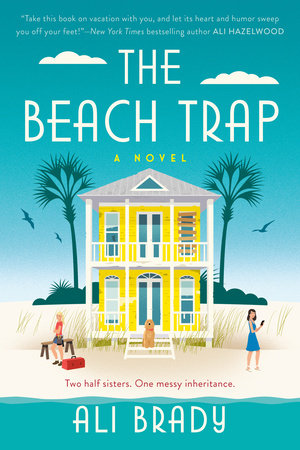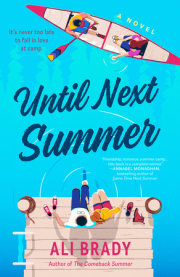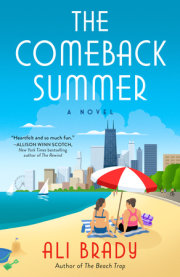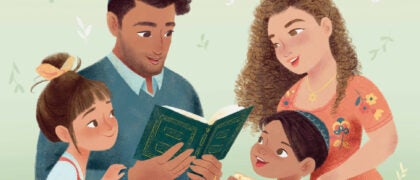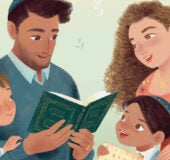CHAPTER ONE
Kat
The laughter of teenage girls without a worry in the world might be my very favorite sound. Of course, these girls aren't nearly as carefree as I'd been at their age.
When I was fifteen, my biggest problems were the fact that my BFF Jill and I both had a crush on the same boy, and that my parents wouldn't let me buy clothes from Hollister because they weren't ladylike.
These girls have adult-size problems: Luna's mom is in prison again; LaTasha's living with her sister, who works three jobs just to make ends meet; and Chelsea told me her mom couldn't afford groceries last week.
While their stories break my heart, their laughter puts it back together again. As a volunteer at the Peachtree Boys' and Girls' Center, I know I'm here to be the helper, but honestly, they help me, too.
Outside these four walls, my world is focused on designer labels and fashion trends-but inside, I'm reminded that safety, stability, and unconditional love have so much more value.
"What do you think, Miss Kat?" Chelsea asks, holding her tissue-paper-flower headband up for me to see.
Since they're too young for margaritas, we're celebrating Cinco de Mayo with an arts and crafts project I saw on TikTok, making Frida Kahlo-inspired floral crowns.
"Very festive." I try to match Chelsea's smile with one of my own, and hope she can't see through it. The girls are so in tune to troubles that I make a conscious effort to leave mine at the door. But you can't always control when grief decides to rear its ugly head.
"How about me?" Jackie asks, striking a pose with her tissue flowers.
"Gorgeous," I tell her, as I fold sheets of pink and orange tissue together to make a flower of my own. While the girls tolerate these crafty activities, I genuinely love them. They remind me of simpler times back at summer camp when we told time by the morning reveille and the dinner bell, when a swim in the lake counted as bathing and the only thing on my agenda was soaking up every minute.
"You can take my picture if you want," Jackie offers, batting her eyelashes.
My smile falters. Ever since the girls found me on Instagram, they've been not-so-subtly hinting they'd like to be featured in my feed.
"It's against the rules," I remind her. "It's for your privacy that I'm not allowed to post your pictures."
"I won't tell," Jackie says with a sly smile.
"Me either," Chelsea chimes in.
"But one of her seventy-five million followers might," LaTasha adds.
"Seventy-five thousand," I say, correcting her, although both numbers are so beyond the girls' comprehension the difference doesn't mean much.
"Y'all are crazy," Luna says, ripping a sheet of tissue paper she's supposed to be folding into a flower. "She don't care about no rules. She just doesn't want to ruin her fancy image by hanging out with the likes of us."
"That's not true," I tell Luna, lowering my voice so it doesn't sound defensive. "I'm sure my followers would love to know I spend time volunteering-but I don't hang out with you guys for the likes."
"Then why do you?" LaTasha asks.
"Because I like you," I tell her. "I like all of you."
The girls light up, all except for Luna, who scowls. I wish
I could tell her that I understand, that I know how hard it can be to let new people into your heart once you've been hurt. But they have trained counselors to help with the heavy things like that-I'm just here to be a positive role model and supportive friend.
My phone buzzes with an alarm, reminding me there's somewhere else I have to be. As much as I'd like to skip the meeting and stay here, I know my mom would kill me. And one death in the family this year is more than enough.
I find a parking spot outside Tin LizzyÕs in Midtown, where sounds of drunk, happy people drift out the open windows. I wish I could join them and drown my sorrows in a giant margarita and an order of buffalo shrimp.
The restaurant is Mexicanish, which makes it a perfect place for white yuppies to celebrate a holiday that doesn't belong to them. Not that I'm any better than they are-an imposter in my own right, on my way to play the role of a supportive daughter, comforting her grieving mother.
It's been just over a month since my dad passed away. He had a heart attack sitting at his desk, where his secretary found him after she realized he hadn't left for his lunch meeting.
My father lived for his work as a commercial real estate developer, so it seemed appropriate that that's where he died. I can't stop thinking about the moment it happened, wondering what his last thoughts were-if he looked at the framed family photo he kept on his desk and thought about me and Mom, or at the stack of papers he'd never be able to finish.
Probably the latter.
While I loved my dad-idolized him, really-he always seemed more interested in the news or whatever game was on TV than the desperate girl clamoring for his affection.
Even back then, I knew I wasn't the kind of daughter he wanted. I collected Barbies instead of baseball cards, built scrapbooks instead of model cars, and the ultimate sin: I grew up to have a career he couldn't easily explain, much less understand.
One of our last conversations ended with him asking when I'd finally grow up and get a "real" job-even though I've monetized my Instagram account with enough sponsorships that the income alone has been paying my bills for almost a year.
But no matter how much success I had, David's daughter the social media influencer would never measure up to Paul's daughter the tax attorney, Stephen's son the lawyer, or Brian's daughter the financial planner. I hate that he died disappointed in me.
The blast of cold air-conditioning makes me shiver as I walk into the lobby of Callahan and Callahan, the firm handling my father's affairs. There's something familiar about the room, and I have the glimmer of a memory of being here once before. I was nine or ten, tagging along with my dad on an errand to sign some Very Important Papers. I remember the hunter-green walls and the rich mahogany furniture feeling like a library, and I knew I was supposed to be a Good Girl.
While dad and the senior Callahan spoke in hushed tones about a small trust for a child in Michigan or Minnesota, I sat so still and quiet it was like I wasn't even there. Which was what my dad wanted. For me to be invisible.
And it must have worked, because when they finished talking, my dad turned and walked out of the room, leaving me alone with the stern-faced lawyer. My dad came back a few minutes later, growling at me to "come on," as if it were my fault he'd left me.
Back in the same room all these years later, the pressure of being the perfect daughter is as strong as it ever was.
I find my mother sitting in the private waiting lounge, impeccably dressed as always. She makes being a widow look good in her all-black Eileen Fisher ensemble-wide-leg slacks, a cashmere sweater, and a black-and-white silk scarf with just a pop of gold. Her hair, the same chestnut shade as mine, is smooth and straight thanks to the keratin treatments we both get every twelve weeks.
Looking down at my own outfit-black jeans with a Topshop floral blouse-I realize my mom is representing my brand philosophy that "life is a fashion show" even more than I am. Although, in my defense, I did have the challenge of dressing for two very different audiences.
"Hey, Mom," I say, giving her a kiss on the cheek.
"Hi, sweetheart," she says, crossing and uncrossing her legs.
I take a seat beside my mom and glance down at her hands resting in her lap. If it weren't for the small tic of spinning her wedding ring around her finger, I wouldn't know she was nervous.
From everything I've heard, the reading of a will is just a formality, but for my mom, this is a whole new frontier. My dad took care of this sort of thing for their entire thirty-year marriage, so I imagine it's overwhelming for her to suddenly be the one in charge.
I place my hand on my mom's back in what I hope is a comforting gesture. We've never been a touchy-feely family, but when she turns and offers me a small smile, I give one back to her.
After what feels like long enough but not too long, I bring my hand back and rest it in my lap. Like mother, like daughter, I start to twirl my own ring-a Yurman classic in topaz I got for my twenty-fifth birthday. Although unlike my mother, I actually have a reason to be nervous. There's a very good chance the secret I've been keeping for my dad for the last fifteen years is about to be revealed.
Suddenly, I'm twelve years old again, sitting in the back seat of my dad's rental car, wondering how many times a heart can break. My dad and my best friend. My best friend and my dad.
"Not now," he'd said when I asked him about it as we drove away, down the bumpy dirt road. Of course, I knew he really meant "not ever." Our family didn't believe in talking about unpleasant things when they could just as easily be ignored. It was practically our family motto to put on a happy face, even if you were shattered on the inside.
After I got through the shock of my grandfather's funeral, I'd tried to believe Blake hadn't known we shared a father. Sure, she had told me that her father had another family, and she knew my last name was Steiner, but I desperately wanted to give her the benefit of the doubt. I wanted to believe it was all a big misunderstanding, that she was just as much a victim as I was.
But then I got her letter.
In the months after camp, Blake sent several letters, but I barely read them and never wrote back. I had nothing to say to her after I read that she'd gone to Camp Chickawah in an attempt to get closer to her father. To my father.
The feeling of betrayal was as sharp as a knife in my back: Blake had never wanted to be my friend. She'd been using me to get to my dad, and who knows what would have happened if my grandfather hadn't died, if she'd come to visit me in Atlanta like we'd talked about.
After reading that first letter, I shut Blake O'Neill out of my life and out of my mind. The memory of her eventually settled like a stone in the pit of my stomach-something that flared up every once in a while when I saw a young girl with blond wispy hair, or when I heard "Build Me Up Buttercup" on the radio.
Still, I kept the secret. I wasn't sure if I was protecting my dad from being found out, or protecting my mom from being hurt. I just knew it was my responsibility to keep my family together.
Now my dad is gone, but the secret is still here, wedged between my mom and me, like a crack in the foundation our family was built on.
A door opens into the lobby and Scott, the junior Callahan, walks out. He looks about my mom's age, tall and sturdy, like he played football in college before following in his father's footsteps. He flashes us the same sympathetic smile I recognize from when he introduced himself during shiva.
"Eleanor." He greets my mother before turning to me. "Katherine."
"Kat," I say, correcting him. I'm not sure why I bother, except that I already feel so out of sorts in this situation that I at least want the comfort of my name.
Mr. Callahan nods and leads Mom and me back to his office. He takes a seat behind his massive desk and invites us to sit in the plush chairs facing him.
"Ladies," he says, clearing his throat. "I'm afraid I have some difficult news."
My breath hitches and I brace myself for the impact of a crash that's been fifteen years in the making. I clench my fists, afraid not of the news, but of how my mom will take it: if she'll fall apart, if she'll be mad at my dad, or at me since I'm the only one left to blame.
"At the time of his passing, David was on the verge of bankruptcy," the lawyer says.
I exhale and lean back into my chair at the same time my mom leans forward in hers. That was not the bombshell of truth I'd been expecting.
"That can't be right," my mom says, her voice slightly wavering.
For the first time, I realize the weight of what the lawyer actually revealed. It wasn't the secret, but it was one that could have an even greater impact on my mom's life.
I keep my eyes focused on the lawyer, not brave enough to glance at my mom beside me as we both wait for the man to say he's made a mistake. But Scott Callahan's face is set in an all-business expression, any signs of warmth or familiarity left out in the lobby.
"David unfortunately made a few bad investments," he says, "including one in a friend's business that, well, for lack of better words, tanked. David was the main investor."
My mom shakes her head. "But-"
"He leveraged most of your investment portfolio, and there's not much left in savings-although the house is fully paid for, and it's yours." He says those last words as if my mother should take comfort that while she's lost her husband, all her money, and any sense of safety or security, at least she isn't homeless.
But I'm with my mom-there must be a mistake. If my dad had been hemorrhaging money, there's no way he would've gotten a brand-new Porsche just a few months ago. And the month before that, he bought me the checkered Louis bag I'd been eyeing.
Those were not the actions of a man who'd lost all his money. But they were, I realize, the actions of a man who carried on like normal, living a charade until the very end, even as his world crumbled around him. And now that he's gone, we're left to clean up his mess without so much as a broom.
Copyright © 2022 by Ali Brady. All rights reserved. No part of this excerpt may be reproduced or reprinted without permission in writing from the publisher.




